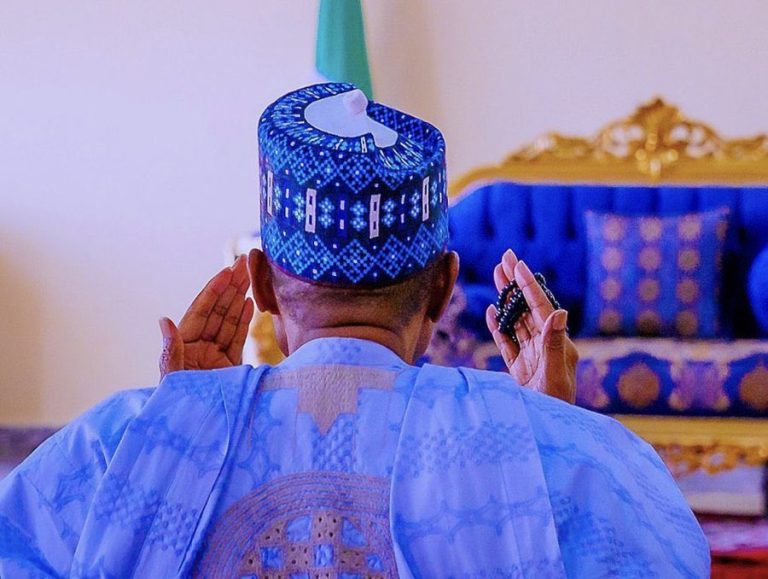In Nigerian history, few figures have resonated as profoundly as the late former President Muhammadu Buhari. His tenure was marked not only by the political and economic challenges of a nation in transition but also by an unwavering commitment to the principles of integrity and trust.
Since his passing, a chorus of voices has emerged, each recounting personal anecdotes that underscore Buhari’s steadfast dedication to these values. Reflecting on my own interaction with him, I’m reminded of the profound impact a single conversation can have—particularly when it centers on the ethical foundations of leadership.
In 2014, while serving as the News Editor for Weekly Trust newspaper, I had the privilege of conducting a one-on-one interview with Buhari in his Kaduna office. At the time, Nigeria was grappling with political turbulence, economic instability, and security challenges. Buhari, a former military ruler, was once again a presidential candidate—poised to return to power. This wasn’t merely a journalistic assignment; it was an opportunity to engage with a man whose life had been defined by a relentless pursuit of integrity.
The interview unfolded in a manner that was both enlightening and disarming. Buhari spoke candidly about his vision for Nigeria, his fight against corruption, and the indispensable role of trust in governance. But it was his parting advice that left a lasting impression:
“Work hard and maintain trust.”
In those few words lay a powerful philosophy that transcended politics—a creed applicable to all facets of life.
To Buhari, trust was the bedrock of all meaningful relationships—whether personal, professional, or political. It is the invisible thread that binds people together, fostering cooperation, collaboration, and mutual respect. In a society where skepticism often prevails, the ability to inspire trust is a rare and invaluable trait. For Buhari, this principle wasn’t just rhetoric; it was how he lived his life.
Throughout his military and political journey, Buhari faced immense challenges that tested his integrity. His ascent to power in 1983 was met with skepticism, yet he governed with moral clarity, prioritizing the fight against corruption and promoting accountability. Even after his ousting in a coup, his return to democratic politics in 2015 reflected a resilience rooted in principles many considered outdated in a rapidly evolving world.
Buhari’s legacy is thus a powerful testament to the enduring relevance of integrity, especially in a political landscape so often marred by deceit and opportunism.
His call to “maintain trust” is not limited to political life. In today’s world—where trust in institutions, leaders, and even interpersonal relationships is eroding—his message resonates more than ever. In business, trust among stakeholders leads to sustainable growth. In communities, trust enables social cohesion. In personal relationships, it serves as the foundation upon which bonds are built and sustained.
But how do we build and preserve trust in an increasingly distrustful world?
Buhari’s life offers us several key lessons:
- Integrity must be non-negotiable.
Be true to your word. Act with transparency. Hold yourself accountable. A leader’s credibility rests on their ability to uphold promises—even when doing so is difficult. - Foster open dialogue.
Buhari’s willingness to engage with journalists, political opponents, and the public showed that listening is just as vital as speaking. In a polarized society, the ability to engage respectfully with differing viewpoints is essential to building bridges. - Embrace long-term thinking.
In an age of instant gratification, the pursuit of trust may seem slow or unrewarding. Yet, Buhari’s life shows that the fruits of integrity often take time. Leaders must be patient, consistent, and principled to build lasting credibility.
Reflecting on my brief but impactful encounter with Buhari, I am continually drawn to the simplicity and depth of his advice:
“Work hard and maintain trust.”
These are not just platitudes; they are guiding principles that can shape the future of individuals and nations alike. In a time dominated by cynicism and distrust, Buhari’s legacy stands as a beacon of hope—a reminder that integrity and trust remain the cornerstones of effective leadership and a flourishing society.
The life and leadership of Muhammadu Buhari provide a compelling narrative about the importance of character in public service. His unwavering commitment to these timeless values offers enduring lessons—not just for leaders, but for all of us.
As we navigate the complexities of today’s world, let us strive to embody the virtues Buhari championed. In doing so, we honor a man who believed deeply in the transformative power of trust—and we help lay the foundation for a more just, equitable, and harmonious society.


